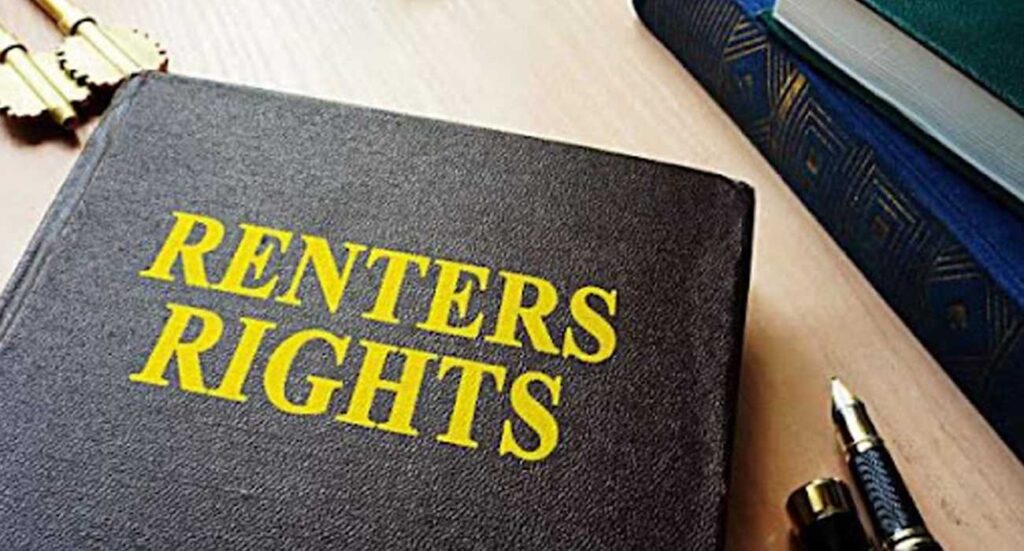Renting a property is a common choice for many individuals and families, offering flexibility and convenience. However, it’s important to be aware of your rights as a renter to ensure a fair and safe living arrangement. In this article, we will explore the key aspects of landlord-tenant law and help you understand the protections available to you.

Understanding Landlord-Tenant Law
Overview:
Landlord-tenant law establishes the legal relationship between landlords (property owners) and tenants (those renting the property). It sets out rights and responsibilities for both parties, aiming to create a balanced and harmonious living arrangement.
Key Terms and Definitions:
Before delving deeper, let’s clarify some essential terms commonly used in landlord-tenant law:
Landlord: The property owner who rents out their property.
Tenant: The individual or group occupying the rented property.
Lease: A legal agreement outlining the terms and conditions of the rental.
Rental Agreement: A less formal agreement that may not be as comprehensive as a lease.
Security Deposit: A sum of money paid by the tenant to the landlord as security against damages or unpaid rent.
Eviction: The legal process of removing a tenant from the property.
Renters’ Rights
Right to a Habitable Property:
One of the fundamental rights for tenants is the right to a habitable property. This means that the landlord must provide a safe and well-maintained living space, free from health hazards, structural issues, and other conditions that may render it uninhabitable.
Right to Privacy:
As a renter, you have the right to privacy within your rented property. Your landlord cannot enter your home without proper notice, except in emergencies or other specific circumstances defined by law.
Right to Repairs and Maintenance:
It is the landlord’s responsibility to ensure that the property remains in good repair throughout the tenancy. Any necessary repairs or maintenance should be promptly addressed by the landlord, and tenants should report any issues as soon as they arise.
Right to Non-Discrimination:
Under landlord-tenant law, it is illegal for landlords to discriminate against tenants based on factors such as race, color, national origin, religion, sex, familial status, or disability. Everyone should have equal access to housing opportunities.
Right to Security Deposit:
When renting a property, landlords often require a security deposit. This deposit serves as a protection for the landlord in case of any unpaid rent or damages caused by the tenant. However, tenants have the right to the return of their security deposit, minus any lawful deductions, at the end of the tenancy.
Lease Agreements
Types of Lease Agreements:
Lease agreements can vary depending on the rental situation. Some common types include fixed-term leases, month-to-month leases, and subleases. It’s important to understand the type of lease you have and the specific terms outlined in the agreement.
Important Lease Terms:
Lease agreements contain crucial terms that dictate the rights and responsibilities of both landlords and tenants. These may include rent amount, payment schedule, lease duration, late fees, pet policies, and restrictions on alterations to the property.
Understanding Your Lease:
Before signing a lease agreement, carefully read and understand all its terms. If anything is unclear or you have concerns, seek clarification from your landlord. Remember that signing a lease legally binds you to its terms, so it’s essential to be fully aware of what you are agreeing to.
Evictions and Termination
There are specific grounds on which a landlord can evict a tenant, such as non-payment of rent, lease violations, property damage, or illegal activities on the premises. Understanding the grounds for eviction can help you protect your tenancy.
Eviction Process:
The eviction process varies by jurisdiction but typically involves a series of notices and legal proceedings. It’s crucial to understand the eviction process in your area and seek legal advice if you receive an eviction notice.
Notice Requirements:
Landlord-tenant law often requires landlords to provide written notice before terminating a tenancy or initiating eviction proceedings. These notice requirements vary depending on the circumstances, lease terms, and local laws.
Legal Remedies and Resources
Seeking Legal Advice:
If you face legal issues related to your tenancy, it’s advisable to seek legal advice from an attorney specializing in landlord-tenant law. They can help you understand your rights, navigate legal processes, and protect your interests.
Reporting Violations:
If you believe your rights as a tenant are being violated, it’s essential to report the issue to the appropriate authorities. This can include local housing departments, tenant rights organizations, or fair housing agencies.
Tenant Associations:
Consider joining a local tenant association or organization that advocates for renters’ rights. These groups provide resources, support, and a collective voice to address common issues faced by tenants.
Conclusion:
Renters’ rights under landlord-tenant law are crucial for maintaining fair and equitable living conditions. Understanding your rights empowers you to assert them when needed and ensures a mutually respectful relationship between landlords and tenants. By familiarizing yourself with key legal provisions, lease agreements, eviction processes, and available resources, you can navigate the rental landscape with confidence and protect your interests as a tenant.